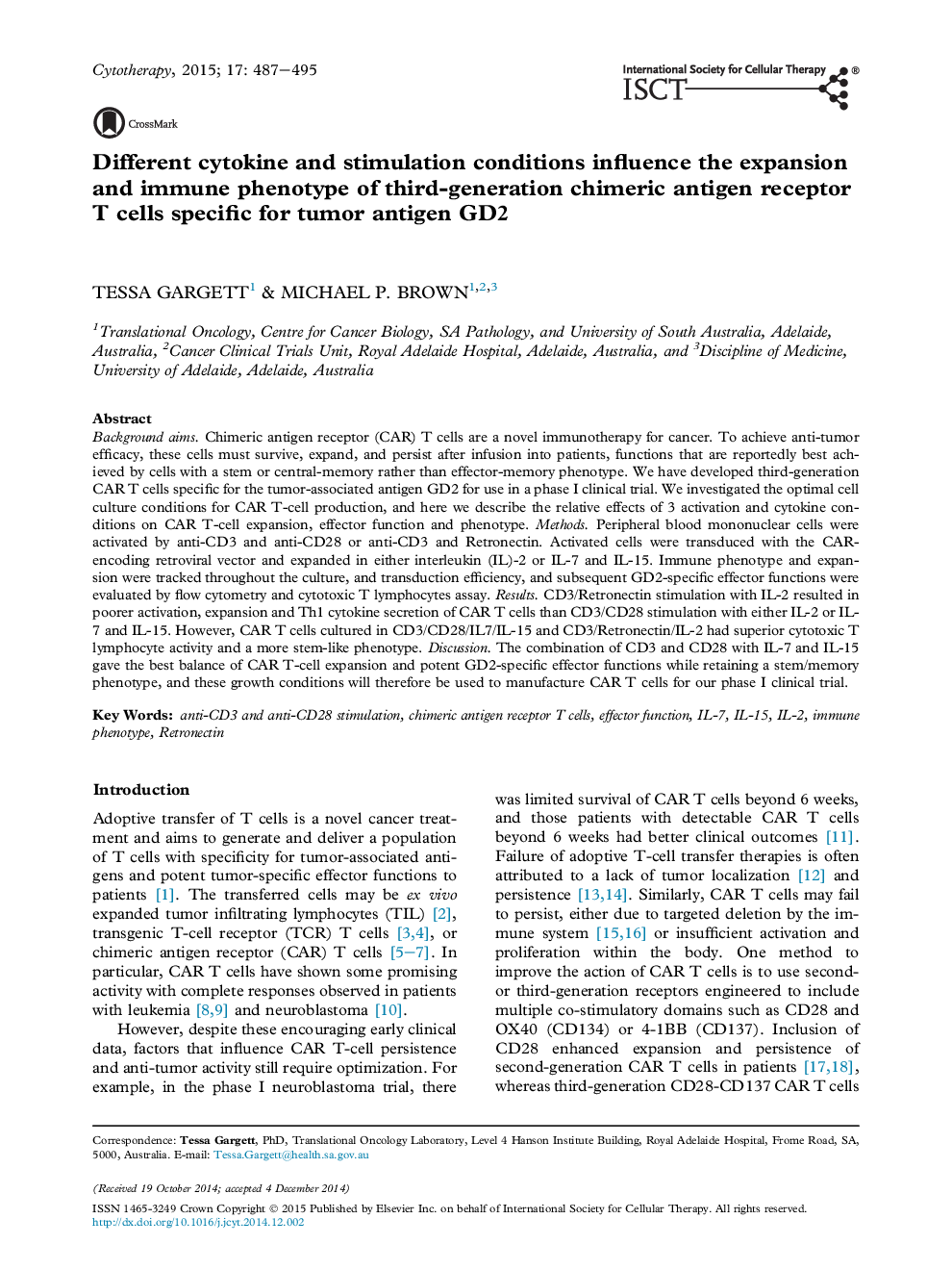| Article ID | Journal | Published Year | Pages | File Type |
|---|---|---|---|---|
| 2171740 | Cytotherapy | 2015 | 9 Pages |
Background aimsChimeric antigen receptor (CAR) T cells are a novel immunotherapy for cancer. To achieve anti-tumor efficacy, these cells must survive, expand, and persist after infusion into patients, functions that are reportedly best achieved by cells with a stem or central-memory rather than effector-memory phenotype. We have developed third-generation CAR T cells specific for the tumor-associated antigen GD2 for use in a phase I clinical trial. We investigated the optimal cell culture conditions for CAR T-cell production, and here we describe the relative effects of 3 activation and cytokine conditions on CAR T-cell expansion, effector function and phenotype.MethodsPeripheral blood mononuclear cells were activated by anti-CD3 and anti-CD28 or anti-CD3 and Retronectin. Activated cells were transduced with the CAR-encoding retroviral vector and expanded in either interleukin (IL)-2 or IL-7 and IL-15. Immune phenotype and expansion were tracked throughout the culture, and transduction efficiency, and subsequent GD2-specific effector functions were evaluated by flow cytometry and cytotoxic T lymphocytes assay.ResultsCD3/Retronectin stimulation with IL-2 resulted in poorer activation, expansion and Th1 cytokine secretion of CAR T cells than CD3/CD28 stimulation with either IL-2 or IL-7 and IL-15. However, CAR T cells cultured in CD3/CD28/IL7/IL-15 and CD3/Retronectin/IL-2 had superior cytotoxic T lymphocyte activity and a more stem-like phenotype.DiscussionThe combination of CD3 and CD28 with IL-7 and IL-15 gave the best balance of CAR T-cell expansion and potent GD2-specific effector functions while retaining a stem/memory phenotype, and these growth conditions will therefore be used to manufacture CAR T cells for our phase I clinical trial.
